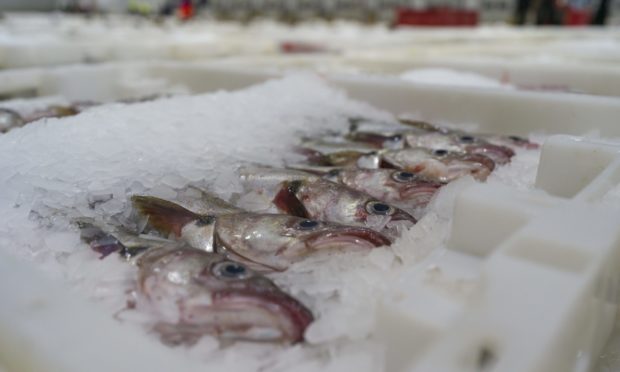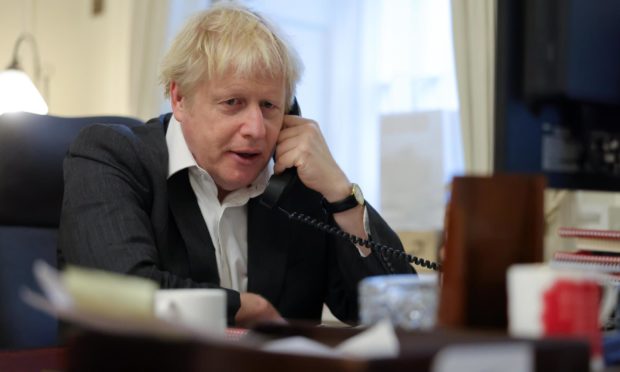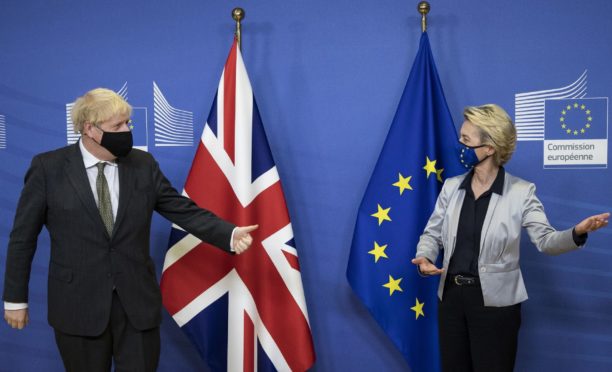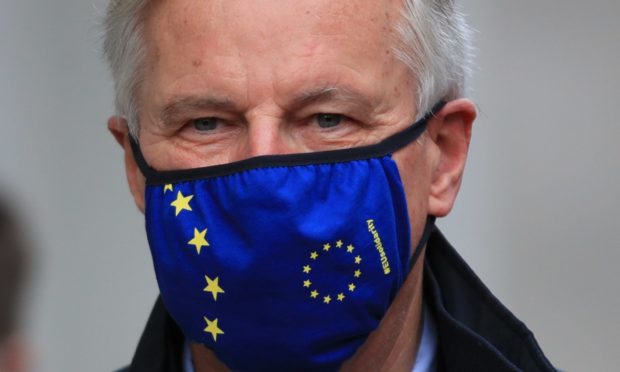Boris Johnson has called on the EU to “see sense” over fisheries, as the battle to break the Brexit deadlock continued in Brussels.
The prime minister said on Friday the onus was now on the EU to make a compromise or the transition period will end on December 31 without a deal, which he acknowledged would be “difficult” in the short-term.
Mr Johnson reiterated “no sensible government” could agree to a treaty that does not give the nation control of its laws and waters, two major sticking points for No 10 in the negotiations as the brinkmanship continued.
Speaking during a visit to Greater Manchester, Mr Johnson said: “Our door is open, we’ll keep talking but I have to say things are looking difficult.
“There’s a gap that needs to be bridged, the UK has done a lot to try and help and we hope that our EU friends will see sense and come to the table with something themselves, because that’s really where we are.”
Mr Johnson talked down the prospects of getting a deal after Thursday’s stocktake on the situation with European Commission president Ursula von der Leyen.
He accepted failing to broker a deal in time “may be difficult at first”, but he continued to insist the UK will “prosper mightily” and the nation must look to the “opportunities that will open up to this country in 2021”.
‘Moment of truth’
EU chief negotiator Michel Barnier told the European Parliament on Friday morning that the two sides now stand at the “moment of truth” with a “very narrow” path to securing a breakthrough as talks resumed in Brussels.
“We have very little time remaining, just a few hours, to work through these negotiations in useful fashion if we want this agreement to enter into force on January 1,” he said.
Mr Barnier warned Downing Street that the time had come “when decisions need to be taken”.
“When it comes to access to markets without tariffs and quotas and the UK would like to regain its sovereignty over fisheries, to be able to control access to its waters and, as I’ve said on many occasions, I’ll reiterate that here: we can accept that and we respect that,” he said.
“But if following a critical period of adjustment that is deemed necessary, if the UK then wants to cut access to these waters for European fishermen, at any given time, then the European Union also has to maintain its sovereign right to react or to compensate by adjusting the conditions for products, and especially fisheries products to the single market.
“And that is where we come up against one of the main hurdles of the negotiations at the moment, fisheries being part and parcel of the economic partnership.”
Mr Barnier, a former French fisheries minister, said there was a fundamental issue of fairness that the EU would not back down on.
He said: “On a personal note, I don’t think it would be fair, not acceptable, if European fishermen were not allowed, following transitional rights, to have access to those waters when the rest of the agreement, especially applying to companies from the UK, would remain stable in their rights, so that wouldn’t be fair, that wouldn’t be honest.”
About 75% of UK fish exports, including the most valuable species such as herring, cod, shellfish, mackerel and salmon, goes to the EU market.
The government has said that after a transition period it wants exclusive access to the zone six to 12 nautical miles from the British coastline and the repatriation of 60% of the EU’s current catch by value in UK seas.

Mr Barnier’s counterpart at Number 10, Lord Frost, warned that progress “seems blocked” ahead of talks resuming in Brussels.
“The situation in our talks with the EU is very serious tonight. Progress seems blocked and time is running out,” he tweeted.
Labour leader Sir Keir Starmer on Friday told the Prime Minister to stop “dithering over Brexit” and produce the deal “as soon as possible” so the government can focus on the coronavirus pandemic.


